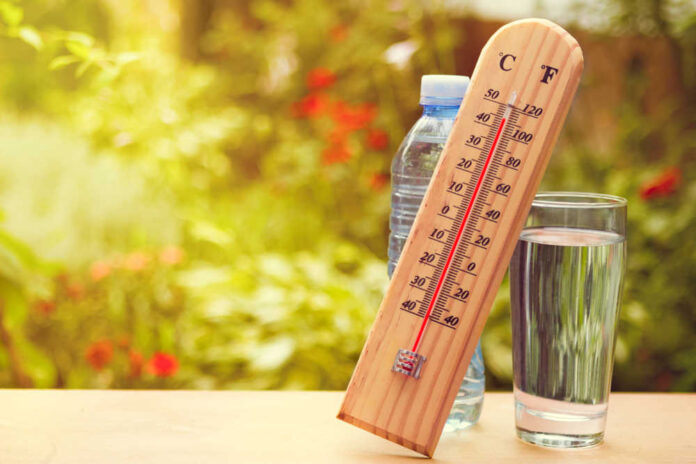
While you enjoy all the fun activities that summer offers, be mindful of the dangers of excess sun and heat exposure.
It’s especially important to take precautions for children and older adults or if you have a medical issue that makes you more vulnerable to the effects of heat.
Too much sun and heat can lead to dehydration, heat exhaustion, or heat stroke.
So how can you stay safe this summer?
Stay Away from the Hottest Part of the Day
Between 10 am and 3 pm, when the sun is high in the sky, stay in the shade or go inside.
This is when the heat is hottest, humidity is higher, and the sun’s rays are the strongest. Being in the sun during these hours can quickly lead to dehydration, sunburns, heat exhaustion, or worse.
If you must be outside in the hot sun, take breaks in the shade and drink plenty of fluids.
Wear the Right Clothing
Wear loose, light-colored clothing. Breathable fabrics like cotton or linen will help you stay cooler than heavy fabrics like denim or wool.
You can even find clothing that is specially made with UV protection.
Wear a hat or visor to protect your face and head from the sun and sunglasses to protect your eyes.
Don’t Forget the Sunscreen
Apply a generous amount of sunscreen with an SPF of 30 to exposed skin, even if you plan to stay in the shade.
Reapply frequently—at least every two hours, or more often if you’re sweating or swimming. Use waterproof sunscreen if you’ll be in the water.
It will also be helpful to have a lip balm with SPF protection to prevent sunburns on your lips.
Drink Lots of Water
Staying hydrated is essential in the heat. Drink an abundance of water throughout the day, even if you’re not yet thirsty. By the time you feel thirsty, you are already underhydrated.
Limit or avoid drinking alcohol, caffeinated drinks, and sugary drinks, as these may not hydrate you as much as water.
If you are exercising, sweating, or engaging in any strenuous activity, drink even more water than usual.
Watch for Signs of Heat Illness
Heat exhaustion is marked by symptoms such as:
- heavy sweating
- paleness
- muscle cramps
- tiredness
- weakness
- dizziness
- headache
- nausea or vomiting
- fainting
If you experience any of these symptoms, stop what you are doing and move to a cooler location. Sip on water and apply cool, wet cloths to your skin.
If your symptoms do not improve within 30 minutes or if they get worse, call 9-1-1 or seek medical attention.
Do not underestimate the danger of heat exhaustion. Being in the sun too long or becoming dehydrated can quickly lead to a life-threatening medical emergency.
You can happily enjoy all that summer offers as long as you take some basic precautions to stay safe and healthy. Drink lots of fluids, take breaks in the shade, and limit your sun exposure during peak hours.






















